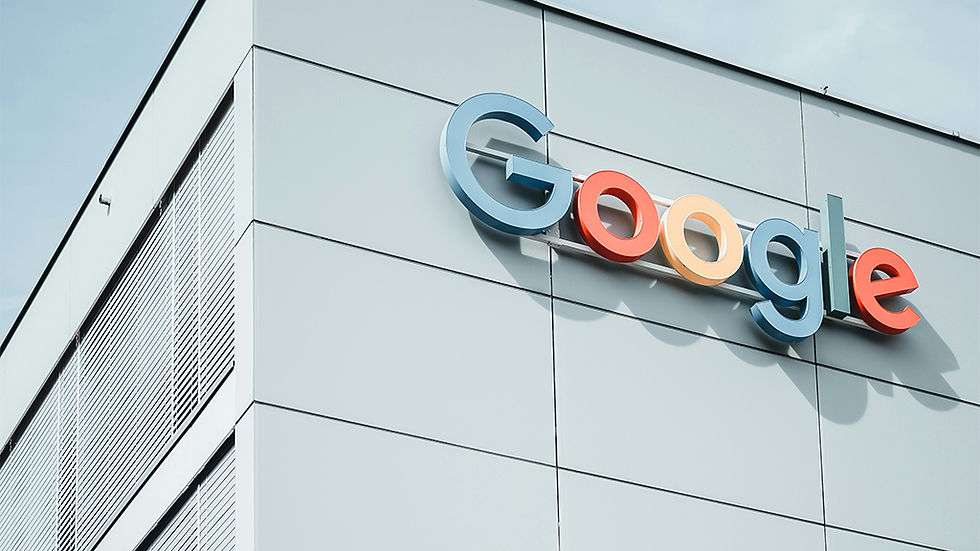Google Makes U-Turn on Phasing Out Third-Party Cookies
- Swype®

- Jul 29, 2024
- 3 min read
Updated: Aug 8, 2024

In a surprising turn of events, Google has reversed its decision to phase out third-party cookies, a move that was initially set to reshape the digital advertising landscape. The tech giant’s change of heart has significant implications for businesses, marketers, and consumers alike. Understanding this development is crucial for those who rely on digital marketing and online advertising, as it affects everything from data collection to targeted advertising strategies.
What Was Google's Plan Around Third-Party Cookies?
In 2020, Google announced plans to phase out third-party cookies from its Chrome browser by 2022, later delaying this to 2023. This decision was part of a broader industry shift towards greater privacy and data protection, following in the footsteps of browsers like Safari and Firefox, which had already implemented similar measures. The plan was to replace third-party cookies with Google’s Privacy Sandbox, a set of technologies designed to protect user anonymity while still allowing for targeted advertising.
The U-Turn: Why Did Google Change Its Mind?
Google’s decision to stick with third-party cookies, at least for the foreseeable future, was unexpected. This reversal appears to stem from several factors:
Industry Pressure
The digital advertising ecosystem heavily relies on third-party cookies for tracking user behaviour, personalising ads, and measuring campaign effectiveness. Google’s initial plan faced significant pushback from advertisers, publishers, and other stakeholders who feared it would disrupt their business models.
Privacy Sandbox Challenges
Google’s proposed alternative, the Privacy Sandbox, faced technical and regulatory challenges. The initiative struggled to gain industry-wide support, and there were concerns about whether it could truly replace the functionality of third-party cookies without compromising user privacy.
Regulatory Scrutiny
Google’s initial plans were met with scrutiny from antitrust regulators. The company’s dominance in the digital advertising space raised concerns that replacing third-party cookies with its own technology could give it an even greater advantage, potentially stifling competition.
Implications for Businesses
The decision to retain third-party cookies has several important implications for businesses and marketers:
Continuity in Ad Strategies
Businesses can continue to use existing third-party cookie-based strategies without needing to pivot to new, potentially less effective, technologies. This continuity is especially important for small and medium-sized businesses that may not have the resources to quickly adapt to new advertising methods.
Privacy Concerns Remain
While the retention of third-party cookies may simplify advertising strategies, it does not address ongoing privacy concerns. Consumers are increasingly aware of how their data is being used, and businesses will need to balance effective advertising with transparent and ethical data practices.
Future Uncertainty
Although Google has postponed the phase-out, this doesn’t mean third-party cookies are here to stay forever. Businesses should remain vigilant and prepare for potential changes in the future, including the possible revival of Privacy Sandbox or other privacy-focused initiatives.
Preparing for What’s Next
Given the ongoing evolution of digital privacy standards, businesses should consider the following steps to future-proof their advertising strategies:
Explore First-Party Data
Building a strong first-party data strategy can help businesses reduce their reliance on third-party cookies. Collecting data directly from consumers through interactions on owned channels (such as websites, apps, and email campaigns) can provide valuable insights while ensuring greater control over data use.
Invest in Contextual Advertising
Contextual advertising, which targets ads based on the content of a webpage rather than user behaviour, is regaining popularity. This method aligns well with privacy concerns and could become more prominent as third-party cookies face future challenges.
Stay Informed
The digital landscape is constantly changing, and staying informed about developments in privacy laws, browser policies, and advertising technologies is essential for businesses to adapt successfully.
Google’s decision to delay the phase-out of third-party cookies offers a temporary reprieve for businesses that rely on these tools for digital advertising. However, this change of plans underscores the importance of remaining adaptable in a rapidly evolving digital environment. By focusing on first-party data, contextual advertising, and staying abreast of industry changes, businesses can navigate the challenges ahead and continue to thrive in the digital age.
For those looking to stay ahead, now is the time to reassess digital strategies and prepare for the inevitable changes on the horizon.



